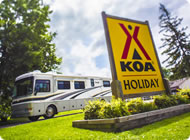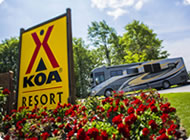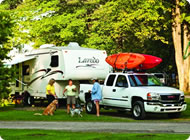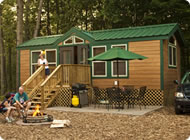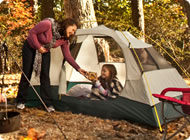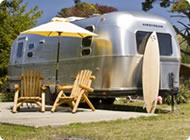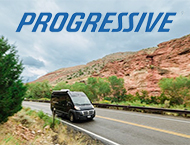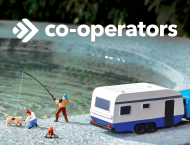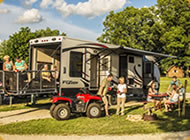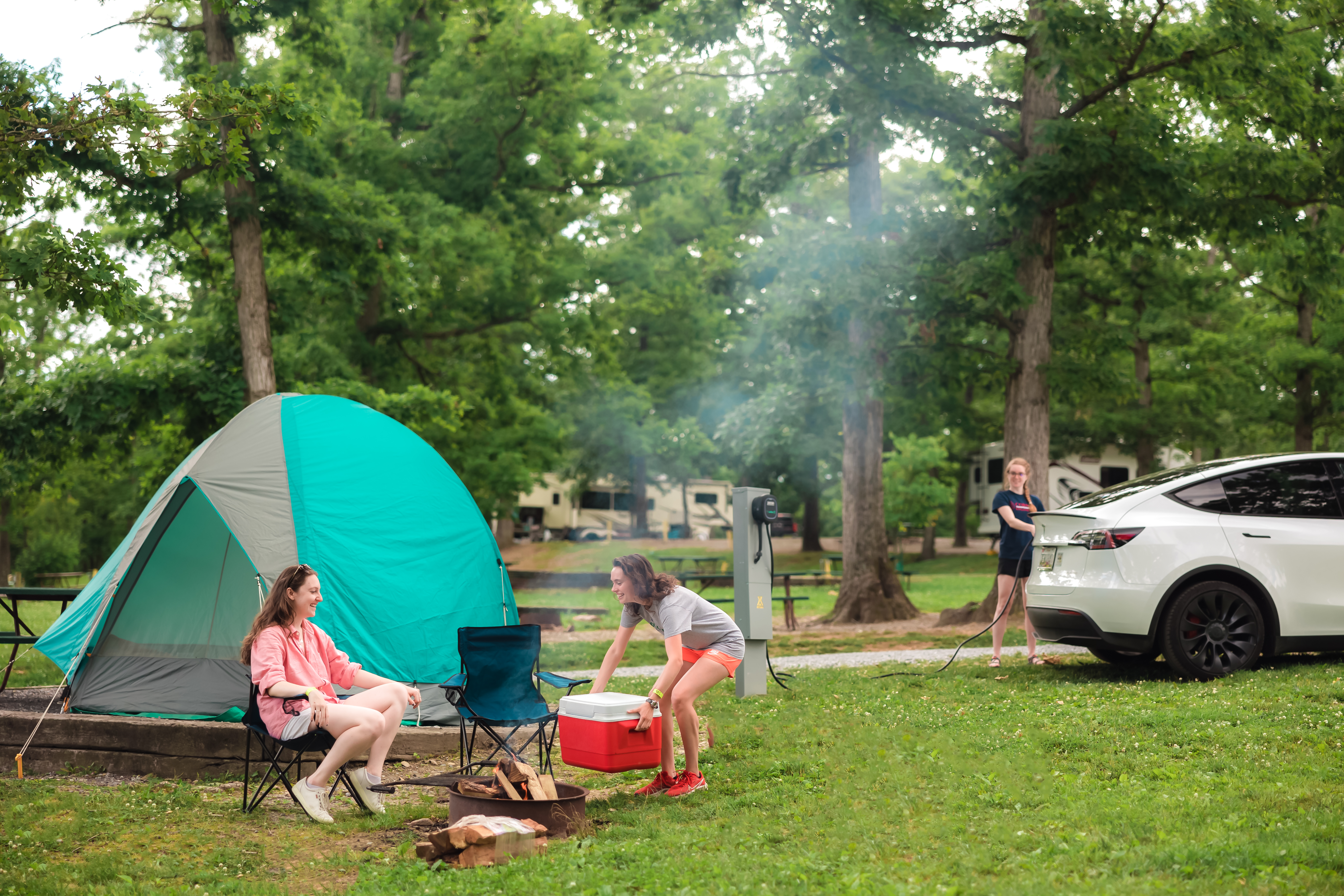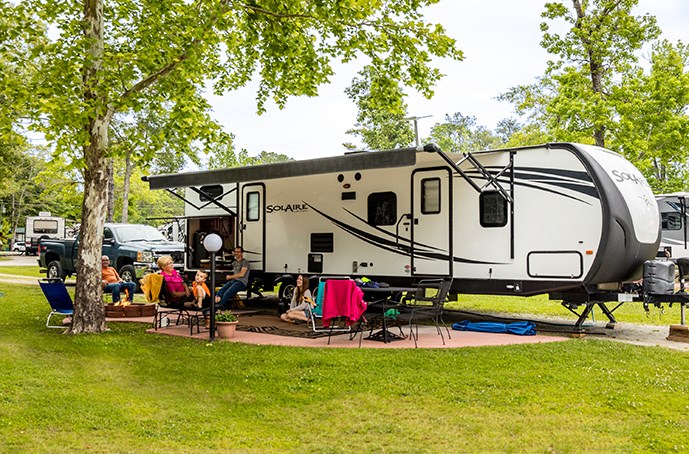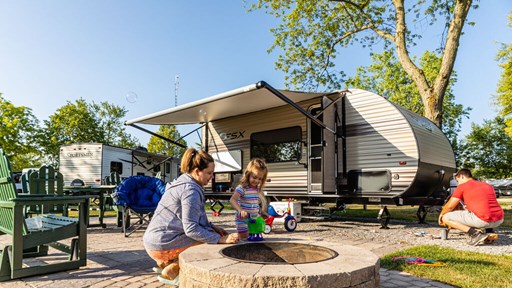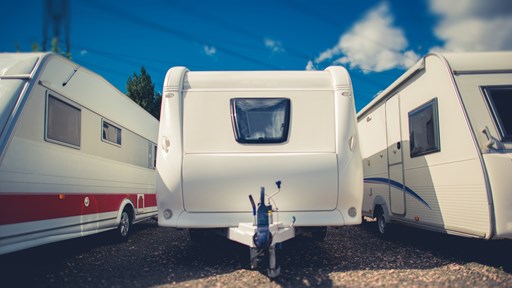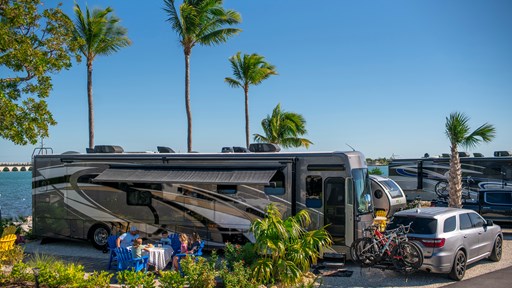One of the amazing benefits of traveling the open road in your RV is that you always have access to hot water. Most RVers choose this mode of transportation because it affords them creature comforts they don’t want to leave at home. Hot water is often one of these because it makes trekking across the country that much sweeter. After all, who doesn’t love warm showers in the morning? Plus, hot water ensures you can properly clean your dishes after each meal.
Most recreational vehicles come with hot water heaters, making easy access to hot water a simple matter. However, if you’re looking to replace or upgrade your water heater, there are a variety to choose from. The main decision you need to make is whether to go with gas or electric. It’s fair to say that both electric and gas RV water heaters offer their own set of features and benefits, but how do you know which is right for you?
In this post, we’ll explore the pros and cons of gas versus electric RV water heaters and give you some tips on how to choose the best one for your rig.
How RV Water Heaters Works
RV water heaters are much smaller than home heaters. A water heater for a small house is usually around 40 to 50 gallons. RV water heaters are normally just six to 10 gallons. However, whether gas or electric, the concept of heating water using a water heater is the same as your home appliance.
There are two main methods of heating water using an RV water heater:
- Gas: Gas RV heaters require you to manually ignite the pilot light using a long match or striker. Some come with an automatic ignition which you can use with just the touch of a switch from inside your RV.
- Electric: Electric water heaters generally only work when you have a 120-volt power source, also called shore power, or a generator available. An electric thermostat controls whether power is needed to heat the electric element or not.
Some generators have both electric and gas modes, which can be used separately or together to speed up the heating process.
Pros and Cons of Gas Water Heaters
If you’re weighing your options between gas and electric, consider the pros and cons of each before making your final decision.
Gas RV water heaters are ideal for those who love exploring more remote locations that may not have access to water, sewer or power. Thanks to liquid propane gas, you can have a hot shower even if you’re not hooked up to shore power. Gas heaters also heat your water up faster and allow the water to recover faster after each use.
Gas heaters do have a few disadvantages, though. If you like your water super hot, you’ll need more propane to heat it up. While it heats up the water using liquid propane, the internal mechanisms still need 12-volt power to operate. In addition, once your gas reserves run out, so too does your hot water source.
Pros and Cons of Electric Water Heaters
If you’re at a campground with shore power, it makes sense to use an electric water heater. Not only will it save you the extra costs of liquid propane, but it’s extremely convenient to use. Other pros of electric water heaters are:
- You never have to worry about the pilot light going out
- The heating element cycles on and off as need, so you don’t have to turn the heater off when you’re not using it
- Electric power maintains the water’s temperature better than gas heaters
However, there are so drawbacks you should keep in mind about electric water heaters. If you’re a fan of boondocking and traveling where shore power may not be available, electric power is more scarce than gas.
Electric water heaters require a substantial amount of electricity, so they’re difficult to use when power is limited. You should also avoid running other high power appliances, like your air conditioner, at the same as your water heater. Your average shower power is 30 amps, so if you go over that amount you risk blowing a fuse.
Tips for Choosing an RV Water Heater
Now that you know the two main methods for heating up your water, it’s time to make your selection. If you’re in the market for a new RV water heater, here are a few considerations that could help you with the process:
- Water storage capacity: Most water heaters hold about six to 10 gallons of water. However, there are 16-gallon heaters, which are actually 10-gallon tanks that mix cold and hot water when you turn the faucet, thus making more warm water available. There are also the more expensive tankless RV water heaters which move cold water through a heating element instead of storing hot water.
- Size of the system: Not all water heaters are the same size. So, before you start shopping, check the size of the opening in your sidewall. Make sure you note the height, width and depth of this space. Even if you want your RV to have a bigger tank, there may not be room for it.
- Protection from rust and corrosion: Rust and corrosion are the worst enemies of water heaters. To protect your water heater from these elements, make sure it’s outfitted with an anode rod or that the tank is lined with glass.
Understanding some basic maintenance for your RV’s water heater will extend its life and save you a lot of money. When you’re not using your RV, drain the water heater tank. You can also winterize the water lines with anti-freeze.
Hot water is something you may take for granted until it’s not there — that’s what makes your RV’s water heater such an important appliance. Not only will it make all your camping adventures more comfortable, but it’s also a simple way to give your RV a homier feel. Understanding the type of water heater you want to install will save you some time and hassle as you shop around.
Once you’ve chosen whether you want a gas or electric RV heater, it’s time to get moving! Find a KOA Campground and book your RV Site today.






